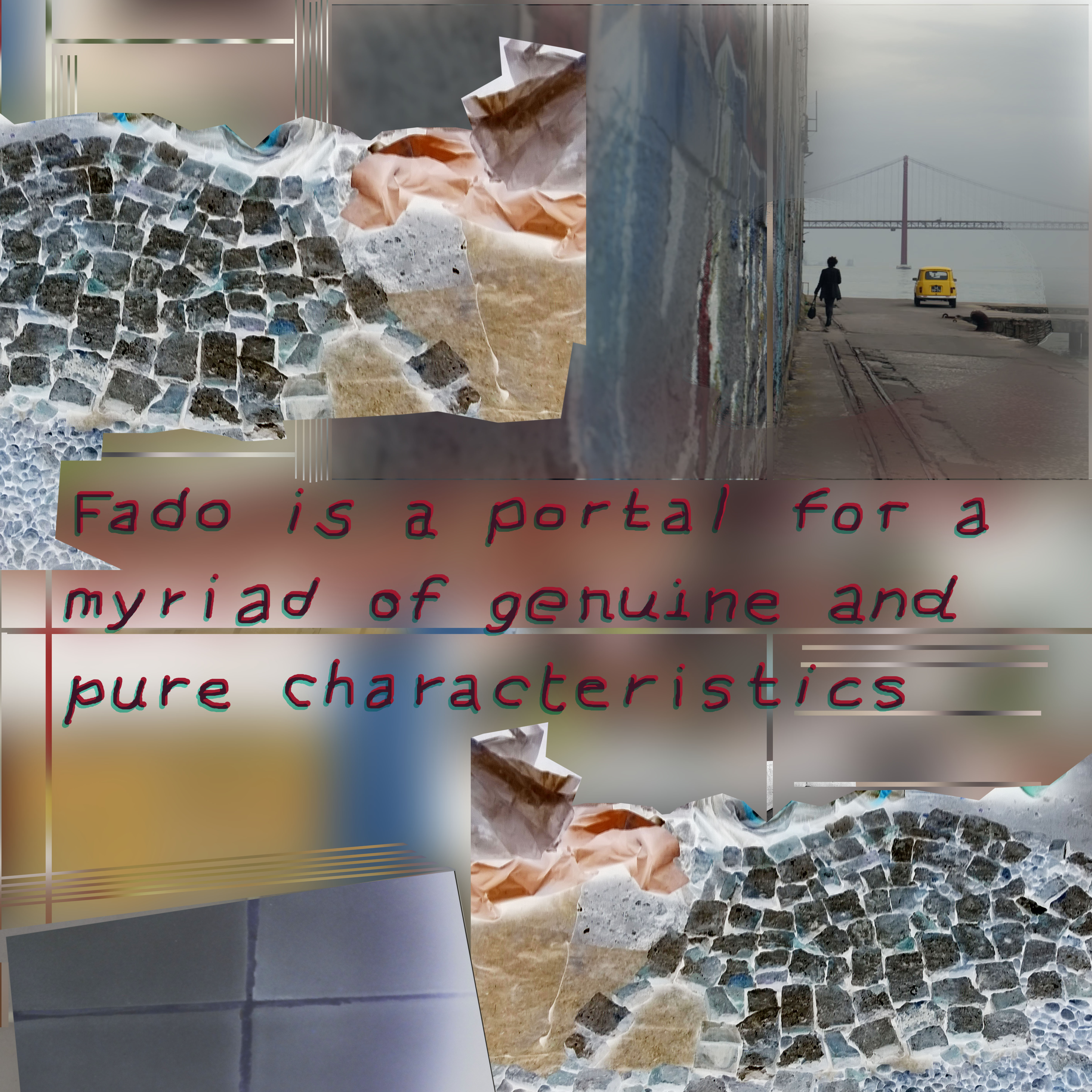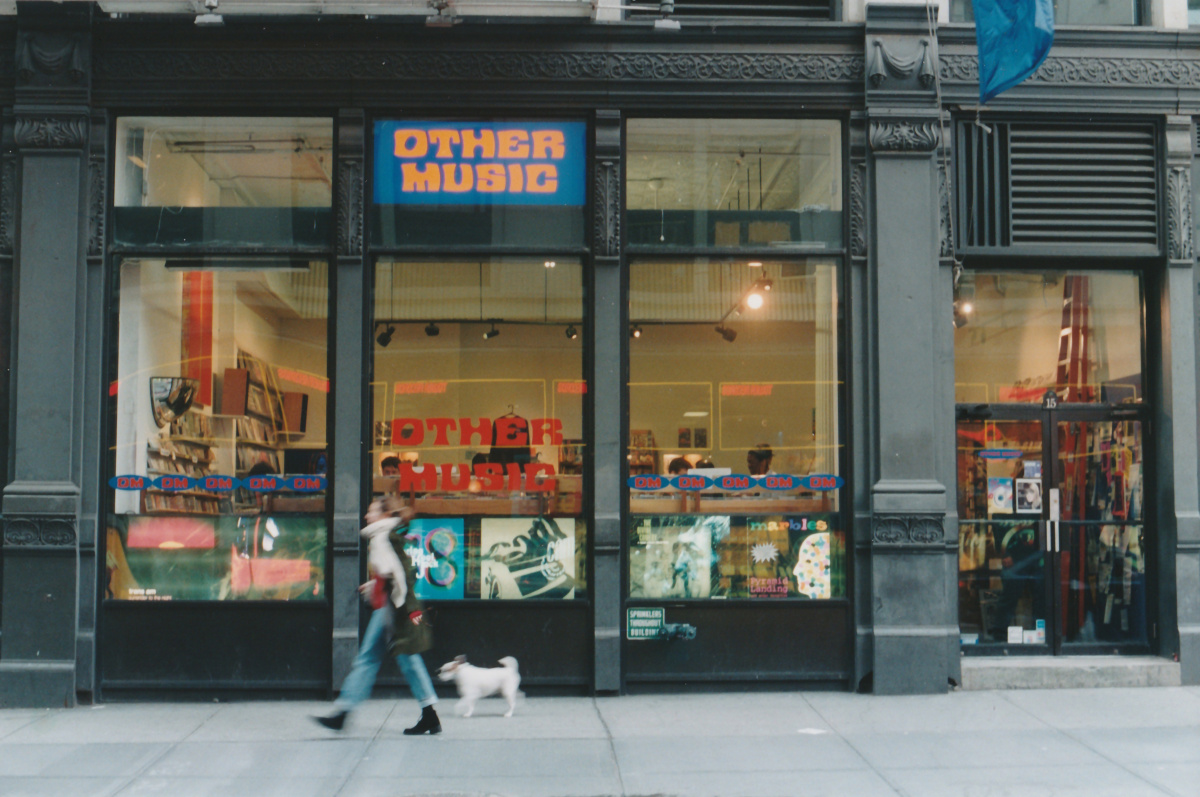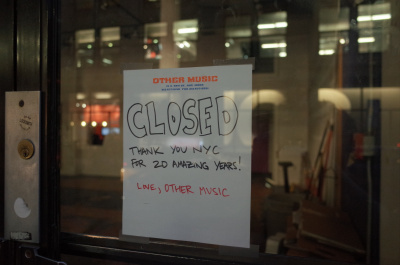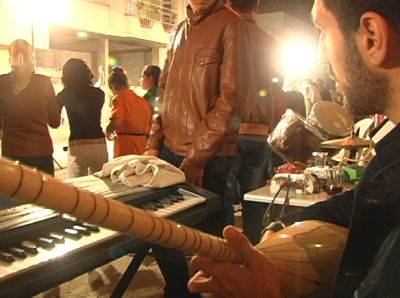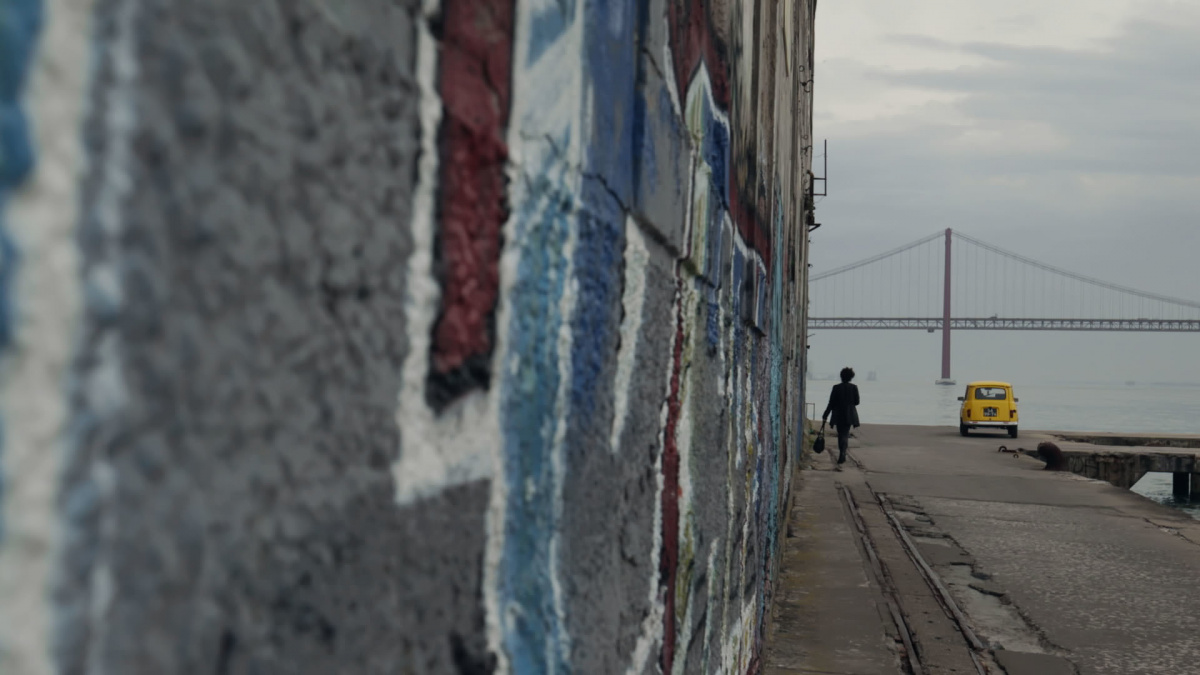
Lisbon Before and After
Silêncio – Vozes de Lisboa captures a transformational moment in Lisbon via the traditional music of fado and the effects of gentrification. André Santos, who was born and bred in the city, finds the nuance – sadness, loss, nostalgia, hope, and renewed energy – in it all.
→ Check all articles of this special
→ Download PDF with introduction and table of contents
I envy the courage of Marta Miranda facing her audience – the patrons of her bar, TascaBeat do Rosário – to tell them she is about to close its doors for the final time. The disappearance of social places, old and new, has become an all-too-familiar story to citizens of Lisbon over the last ten years. The story of Marta and TascaBeat is a heartbreaking one for those of us who call Lisbon home.
What is admirable about her gesture is the way she addresses her audience – mostly tourists – without any prejudice. She understands how important they are for her – for Lisbon – and she understands that in the 21st century we are all tourists. We all use Ryanair and EasyJet. Tourism is the reason her business thrived and it is the reason why it is closing.
Fado Is Life
This ambivalence towards tourism in Lisbon is well portrayed in Silêncio – Vozes de Lisboa (Silence – Voices Of Lisbon), by Judit Kalmár and Céline Coste Carlisle. Co-director Carlisle, who has been living in Portugal for more than two decades, doubles up as an informal guide to Lisbon and the people that live here. The pair use fado, a style of music that is not just traditional but also embedded in the DNA of the most emblematic neighborhoods of the city, to tell a tale about how Lisbon is changing. It’s a change brought about by gentrification, aggressive tourism, and a lack of long-term planning, in terms of both urbanism and economics.
There lies the ambivalence. Fado is the centerpiece of the film, which offers a comprehensive explanation of its roots, its meanings, and how it has developed over the years. But Kalmár and Carlisle also do a great job of showing how it is an attraction for tourists and a focal point for the export of Lisbon and Portuguese culture. It is something genuine, learned by the lived experience of a city, its citizens and relationships.
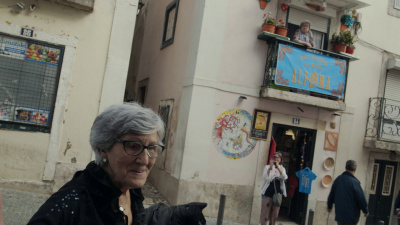
More to the Story
Ten years ago you could count on your fingers the number of people walking downtown or on the most popular avenues after 9pm. Tourism created a different dynamic in the city: It diversified the places people could go – even locals – and gentrification brought new vision and ways of doing business. It brought new people to old and renovated places, and created new places to go and be. Places that were empty ten years ago were suddenly full, thriving.
But mass tourism and Airbnb also forced neighborhoods to change, to offer «the real experience» of living in Lisbon. I don’t know what that is, because I have been living here my whole life and the experience isn’t «real», it is just «experience». But I do know that the pursuit of that «real experience» forced a transformation in the city that no one saw coming. Yes, it’s sad to no longer see some familiar faces, places, and sounds, but it’s also exciting to live and breathe in a multicultural city that adapts so easily to this transformation.
Better and Worse
Fado is a glimpse of light from another time, another way of living, that most of the big cities have lost. It attracts people to Lisbon, which invariably changes the whole dynamic of the place, its DNA. Fado is a portal for a myriad of genuine and pure characteristics one can find in Lisbon. It is an experience, a new reality, that has been transforming the city.
If Marta Miranda perfectly personifies the ambivalence of tourism – the good and bad – the other star of Silêncio, Ivone Días, embodies the essence of fado and how it is struggling. Días, who is over 80 years old, has lived with the music her whole life. Born and raised in Alfama, she became a local legend, singing fado from a young age. Tourism forced her out of her house and she now lives in the suburbs with her daughter.
She represents how fado is a form of living struggle and how it is at risk of disappearance. She still sings in Alfama, for the joy of locals and, yes, tourists too. There are many Ivones in Lisbon. And a lot of Martas too, who study the fado tradition and give it new purpose for modern times. But the rapid changes in the city leave no room for them. Kalmár and Carlisle have captured a transforming moment in Lisbon. For better or worse, things will never be the same.
The film «Silêncio – Vozes de Lisboa» by Judit Kalmár and Céline Coste Carlisle was officially selected at the Norient Film Festival NFF 2021. See full program here.
This text is part of Norient’s essay publication «Nothing Sounds the Way It Looks», published in 2021 as part of the Norient Film Festival 2021.
Bibliographic Record: Rhensius, Philipp. 2021. «Editorial: NFF 2021 Essay Collection.» In Nothing Sounds the Way It Looks, edited by Philipp Rhensius and Lisa Blanning (NFF Essay Collection 2021). Bern: Norient. (Link).
Biography
Links
Published on January 05, 2021
Last updated on April 09, 2024
Topics
How does this ideology, but also its sheer physical expressions such as labor affect cultural production? From hip hop’s «bling» culture to critical evaluations of cultural funding.
Place remains important. Either for traditional minorities such as the Chinese Lisu or hyper-connected techno producers.
From westernized hip hop in Bhutan to the instrumentalization of «lusofonia» by Portuguese cultural politics.
Why do people in Karachi yell rather than talk and how does the sound of Dakar or Luanda affect music production?
From the electronic music duo Gabber Modus Operandi discussing toxic tourism in Bali to the growing displacement of fado culture in Lisbon as an effect of gentrification.
Snap
